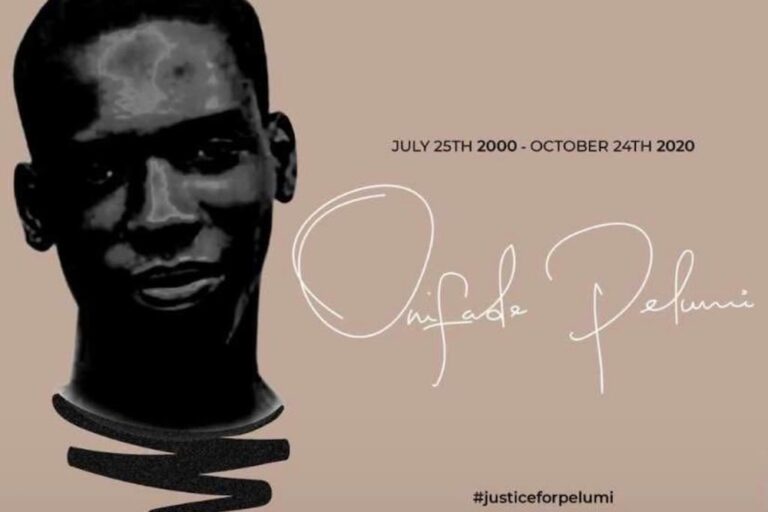Nigeria's Department of State Services detained sports journalist Kufre Carter and charged him with conspiracy and defamation for reposted audio criticising the Health Commissioner's handling of the COVID-19 crisis.
This statement was originally published on cpj.org on 28 May 2020.
Nigerian authorities should drop all charges against journalist Kufre Carter and ensure that the press is not harassed by the country’s security forces, the Committee to Protect Journalists said today.
On April 27, in the southern city of Uyo, officers with Nigeria’s Department of State Services arrested Carter, a presenter with the privately owned XL 106.9 FM radio station, when he responded to a summons issued the day before, according to Inibehe Effiong, Carter’s lawyer, who spoke to CPJ by phone and messaging app, and reports by the privately owned First Reports and Premium Times news websites.
Authorities barred Carter’s lawyer or family from visiting him during his month-long detention, and released him yesterday afternoon on bail, according to a Facebook post by Effiong, who told CPJ that he attempted to meet with Carter multiple times, but was denied by Department of State Services agents.
During his detention, on April 29, a local court charged Carter with conspiracy and defamation, according to a copy of the charge sheet, which CPJ reviewed. Those charges were not dropped when Carter was released, according to Effiong’s Facebook post, which said the journalist is due back in court on June 1.
The charges stem from an April 25 article published in First Reports, which featured the audio of a phone call between two unnamed people that was critical of Akwa Ibom State Health Commissioner Dominic Ukpong’s handling of the COVID-19 crisis in the state, according to the newspaper’s report. The charge sheet alleges that Carter “caused [the article] to be published,” and that the article and recording were “false” and contained “defamatory words against” Ukpong.
First Reports editor-in-chief Ita Utioh told CPJ via phone that Carter had never worked for the newspaper, and that the article in question simply reposted audio that was already circulating on social media.
“”In this confusing set of circumstances, two things are clear: Nigerian authorities are overreacting to criticism, and the Department of State Services is once again arbitrarily targeting a journalist,” said Angela Quintal, CPJ’s Africa program coordinator, in New York. “Detaining Kufre Carter for one month is a violation of his basic rights. Carter should never have been detained, and the charges against him should be dropped immediately.”
In a phone conversation today, Carter told CPJ that he could not comment on the case, as it was still before the court.
XL 106.9 FM is an Akwa Ibom-based radio station that airs lifestyle programs and news, entertainment, and sports coverage. Carter primarily covers sports for the station, according to Premium Times.
If convicted, Carter faces a maximum sentence of two years in prison for conspiracy and the same for criminal defamation, and three years’ imprisonment for the allegedly false and defamatory First Reports publication, according to the charge sheet and the Akwa Ibom state criminal code, a copy of which CPJ reviewed.
Carter was released after providing the court a bail bond of 200,000 naira ($512), according to Effiong. On April 29, the court had granted Carter bail under the conditions that he provide a bond of 3 million naira ($7,692), a letter from his community leader confirming his identity, and a senior civil servant to act as surety, but Effiong said these conditions were too difficult to meet. The requirements were revised after Effiong filed an appeal, which the prosecution is contesting, he said.
Akwa Ibom State Attorney General Uwemedimo Nwoko told CPJ by phone that the prosecution had a right to appeal Carter’s bond conditions, but declined to comment further on the case.
Reached by phone, Ukpong told CPJ that he had nothing to do with Carter’s detention and could not speak further because he was not comfortable with telephone interviews.
Effiong told CPJ and posted on Twitter on April 27 that the Department of State Services director of operations for Akwa Ibom state, Uchehukwu Nnatube, had called a member of his legal team and requested that Carter’s phone be handed over so authorities could “extract” evidence, but later told CPJ that he did not hand over the phone.
When contacted by CPJ, Nnatube told CPJ that he could not comment on Carter’s case because it was before a court.
For years, CPJ has documented the repeated arbitrary detention of journalists by Nigeria’s Department of State Services, which operates under the coordinator of national security, who reports directly to President Muhammadu Buhari, according to the National Security Agencies Act.
In 2019, CPJ documented how Nigeria’s military targeted journalists’ phones and computers with digital forensics technology, seeking to extract information that would reveal sources for their reporting.



